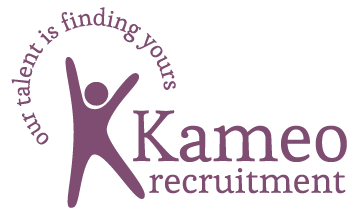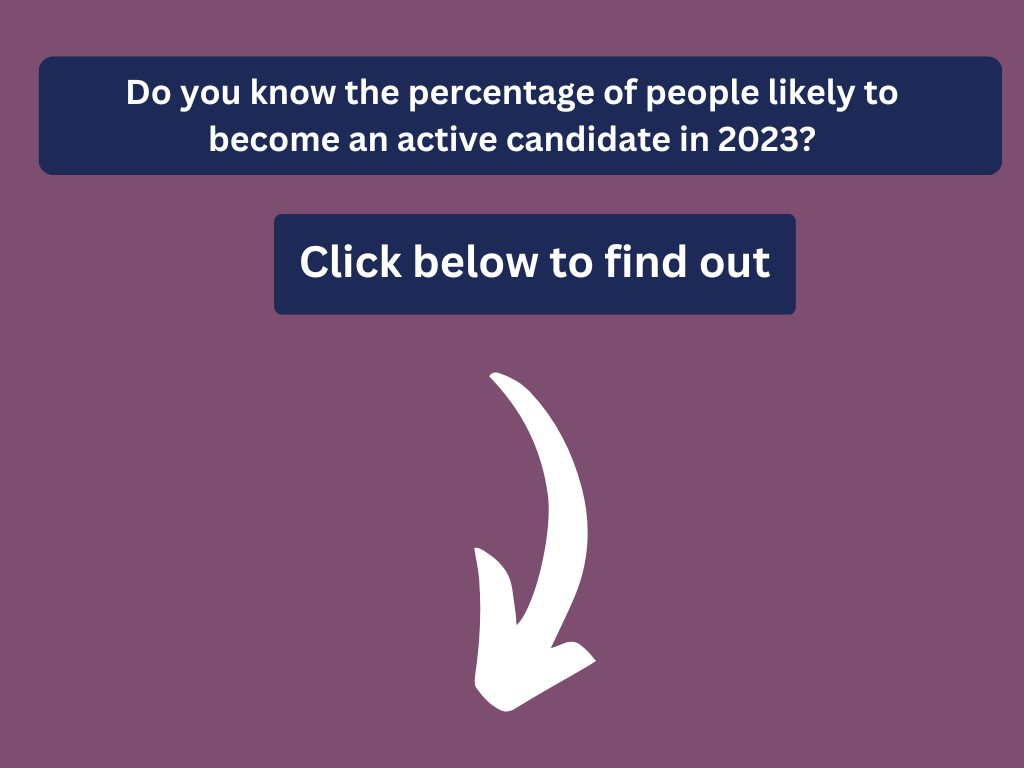Kameo’s News
We’ve all seen it “salary on offer: competitive” – does anyone else think, yawn?! What does this even mean?
Now, offering a competitive salary is possible assuming the hiring manager or talent acquisition team have done their research! When you advertise that you are offering a competitive salary what you’re essentially saying is: “we’ve looked at our sector/ industry, and your job title, and based on our findings the salary we are offering, inclusive of additional benefits, is equal to, or greater than, the average salary for the same or a similar role in the area”. If you do all the above each time you advertise a role, then chances are you really are offering a competitive salary, great stuff! However, the term “competitive Salary” has lost its competitive edge, and here is why…
It is everywhere.
Competitive in relation to what? Other salaries within the same company? The region? The industry you work in? A plethora of questions come to mind when we read “competitive salary”, and in a recent LinkedIn poll we found that:
🌟 38% of 64 people question why there isn’t a salary bracket
🌟 33% of question the transparency
🌟 22% won’t take the time to apply
🌟 8% are still happy to apply
Matt Freestone, the founder of Unmatched (Suffolk-based marketing agency), made a noteworthy comment on this pressing topic:
“Candidates deserve to know the bracket at least to decide if it’s worth their time applying. Companies not offering the bracket or salary either have a pay transparency issue internally or are not actually paying a competitive salary.
I wouldn’t apply to any role where compensation isn’t shown in the job ad”
This comment perfectly attributes to the general consensus: show us the money!
Finding talented employees is a recurring challenge in the labour market, our advice; make your search more fruitful, ergo more successful by advertising the salary, or salary band.
Replacing competitive salary
Are the cogs turning? Are you currently thinking how do I replace “competitive salary” altogether to capture the skillset we require?
Well, here are our top tips:
⭐State the salary, or a salary bracket, above all else you’ll stand out from your competitors as a business who promote salary equality!
⭐Use the phrase “negotiable” but BE willing to negotiate. Negotiations are a two-way street; you can’t set all the terms. But you can be aware of your non-negotiables before you engage with any potential new hires, if you know skills are an absolute must you’ll identify the pool of candidates who are worth negotiating with.
⭐Does the salary depend on experience? If so, let the applicants know! But give them more than this, what experience are you looking for? Again, think about those non-negotiables. To add: tell them what experience you’re looking for sooner rather than later; you don’t want to miss your ideal candidate because you’ve written your ideal experience as your closing statement.
Eeek, we know our salaries aren’t competitive… what can we do instead?!
Firstly, don’t pretend it is, instead could you….
⭐ Create a working environment people want to be part of e.g., do you reward the small things? have you implemented hybrid or flexible working? Is it time to revamp your incentives? How do you acknowledge your unsung heroes? E.g., your support staff: administration, HR, marketing teams etc.
⭐Improve your employee well-being, this does not need to cost the earth, but this topic is a blog in itself; so, get in touch if you want further tips on this topic!
⭐ Assign a budget to professional development. Did you know Kameo are partnered with the Centre of Excellence? Our unique discount code can give you up to 70% off a range of courses, find out more here.
⭐ Create a brand so good, people can’t say no! Social media is a great medium for doing this. If people have enough to live on salary isn’t always the main driver! Honestly, people love working for a great employer, and this does, occasionally, supersede the financials.
⭐Can you offer a profit share? A profit share will offer you a competitive advantage and can save you money too! When you offer a profit share employees are likely to work harder, smarter, and be more loyal.
⭐Do you accept that the people within your business are human, and life happens? Do you let them take the morning off to see their son in the nativity, do you care if they book a dentist appointment on a Wednesday afternoon? Tell people this, it’s what they want to hear.
Candidates, we can help you combat this too
Candidates, our message to you is think greater than the salary and before you apply, or in the interview:
- Discuss the salary, ascertain if it’s competitive to you
- Look at the whole opportunity, not just the salary
- Benchmark yourself against the opportunity, know your own worth! E.g., do you have desired qualifications? What is your previous experience/job title? How many years have you spent in the industry?
- What vibe are you getting from your peers and leadership team? Can you see yourself working there?
- How happy are you knowing you could be part of the business you’re interviewing for? Salary is great but happiness is more.
When the salary is a sticking point for you, we advise:
- You speak to your recruitment consultant about the national / regional average and use it during your interview. Please note, smaller companies irrespective of region are likely (although not always) to pay less than your large corporate who are looking for the same person.
- Know when to walk away – if your research and expertise demonstrates you are worthy of more, then it is important that you understand you can walk away and source a more lucrative opportunity elsewhere.
So, if all of the above is true why does “competitive salary” appear so often? Often it comes from not knowing that there are alternatives, it could be a “well this is the way we’ve always hired” culture, and sometimes it’s genuinely the truth. If you can, take “competitive salary” with a pinch of salt, be a bigger picture thinker and use some of the tools we’ve outlined above ⬆️
It’s also worth bearing in mind…
✔️Salary is often confidential
✔️It’s a way of companies filtering out those who are only in it for the money
✔️It gives you room to negotiate!
In a nutshell, if you’re a candidate or a client our message is this: if it feels right go for it, offer the job, apply for the job, say yes to the job, enjoy the journey; after all, “you miss 100% of the shots you don’t take” – Wayne Gretzky.
East Anglian Salary Survey
Thank you, REED.co.uk, for showing up year after year with your salary survey! It helps us put “competitive” into perspective; clients if you’re offering equal to or below the salaries included in the segment below you cannot state that your salary on offer is competitive.
| Marketing | |
| Marketing Manager | £41,400 |
| Marketing Executive | £26,900 |
| Web Designer | £34,300 |
| SEO/ PPC Executive | £27,200 |
| Graphic Designer | £27,800 |
| Sales | |
| Sales Manager | £44,400 |
| Sales Executive | £29,300 |
| Business Development Manager | £42,300 |
| Account Manager | £33,300 |
| Sales Engineer | £36,900 |
| Commercial | |
| Office Manager | £32,000 |
| Executive Assistant | £29,300 |
| Administrator | £25,400 (slight variation for sales & project administrators; £21,400 = sales and £20,400 = project) |
| Operations Manager | £40,200 |
| Personal Assistant | £25,800 |
| Commercial Continued | |
| Purchasing Assistant | £23,600 |
| Warehouse Manager | £31,00 |
| Logistics Manager | £45,700 |
| Transport Coordinator | £21,900 |
| Category Manager | £53,500 |
| Human Resources | |
| HR Manager | £46,300 |
| HR Business Partner | £46,100 |
| Recruitment Manager | £34,400 |
| Health & Safety Manager | £43,200 |
| Analyst | £39,600 |
| Engineering | |
| Engineering/Technical Manager | £45,100 |
| Project Manager | £50,400 |
| Field Service Engineer | £32,300 |
| Systems Engineer | £47,800 |
| Mechanical Engineer | £40,300 |
| IT | |
| Software Engineer | £50,700 |
| Web Apps Developer | £38,700 |
| Full Stack Developer | £48,100 |
| Automation Test Analyst | £47,600 |
| Software Development Manager | £64,600 |
Source: https://www.reed.com/downloads/reed-salary-guides-2022

You’ve been eating ‘picky-tea’s’ everyday since Christmas, knowing what day of the week it is feels like a distant memory and the idea of putting anything other than loungewear on is hellish.
That’s right, it’s the Christmas break.
If you have been lucky enough to have a break over Christmas, getting back into the swing can be daunting. Functioning like a normal person can pose a slight challenge after a festive week or so at home.
Here are a few of my favourite ways to get back in the saddle after the Christmas break:
PACK YOUR BAG & GET ORGANISED
Chances are, you threw your bag in a corner the afternoon you finished work and cracked open a bottle of red. (Ok, maybe that isn’t exactly what everyone does, but I know it’s along those lines)
Now is a good time to go through that work bag, get rid of anything that you no longer need and repack everything neatly.
If you work remotely, consider your desk space, did this turn into a Christmas wrapping station? Is your desk covered in your children’s toys? Have a declutter and set your space up!
GETTING BACK INTO ROUTINE
Late nights and later mornings mean that our bodies aren’t in our usual working time zone (if you have still woken up at 5am to work out… I seriously take my hat off to you)
Start going to bed slightly earlier a few days before your return to work is a good way to lay the foundations for a successful first few days back… Or… Just make sure the coffee machine is definitely working 🍵
PRIORITISE
One of my new year resolutions… Master the art of prioritising.
When you come back, make a condensed list of just 3 or 4 things you MUST do (Steven Bartlett told me this is the key to productivity, well not personally, on his podcast, but if he wants a conversation my DM’s are open😉)
BOOK A MEETING WITH YOUR INBOX
Before you leave, or when you return, block out a chunk of time to tackle your inbox. Mark yourself as offline / in a meeting and get to work deleting, filing, responding etc… thank me later😊
BE KIND TO YOURSELF
Come Friday you’ll be saying Christmas was like… 6 years ago? Just know the first week back may not be the most productive week of your life but you returned, you’re getting through and showing up!
Make a list of all of the things you want to achieve in 2023, professionally, personally and every other big dream in between. This will help you feel motivated and back on track, you can look back at this list next year and realise you can do anything you put your mind to 🌍
Here’s to 2023 🥂

2022 was supposedly the year of the great resignation; I’m not sure we felt that too heavily in Cambridge and from our perspective it was one of the most challenging years yet candidate-wise with a significant drop in active candidates versus 2021, however, our recent research suggests that 2023 could see a candidate boom as over 50% of those surveyed over a two-week period are very likely to source something new in the new year. Does this statistic surprise you? How confident are you that your existing employees will stay put next year? Are you reading this thinking I’m in that 50% of people looking for something new? I guess in a world where so much is uncertain the one thing we can all control, to some degree, is our career and our workplace happiness!
If you’d like to chat with us about your 2023 growth plans? Or you’re a candidate on the new year, new career drive, please get in touch on 01223 607670 / [email protected]

Name 5 countries in Europe, do a Michael Jackson impression, drink a glass of prosecco…. These are all things that you can do in 7 seconds. This is also how long it takes to make a first impression.
How many of these are you thinking about trying…
Making a good first impression is key to setting off on the right foot, hopefully leading you to strong and positive relationships down the road. Your first impression is determined by 55% body language, 38% tone of voice and just 7% from our actual words (apologies to the wafflers🧇) So spend that 7 seconds wisely!
Making a Good impression at a Job Interview
Dress to impress
I’m not saying you need to borrow Marilyn Monroe’s dress like Kim Kardashian did, but to make a good first impression, dress for the occasion! Pick something professional, comfortable, and most importantly, something you feel confident in. (I say this is an excuse to order a new outfit 😉)
Come Prepared
Failing to prepare is preparing to fail. Hit the books and read up on the company you are interviewing for, (pssst you can find interview tips on our website😉) This will enable you to have knowledge ready to ace the questions, as well as giving you confidence, knowing you are fully prepared.
Body Language
Our facial expressions, posture and hand gestures speak when we don’t say anything. Body language is said to account for 55% of that first impression – avoid slouching, crossing your arms or making excessive movements. Make it positive by standing tall, maintaining eye contact (not in a weird way) and putting on your best smile!
Be yourself
There is no amount of designer gear or perfect posture that outweighs the power of being yourself. Be authentic, be enthusiastic, show yourself in the best light – You’ve got this!
Constantly feeling worried, angry, irritable, tearful, unmotivated or unfocused, really tired or not sleeping well and struggling to make decisions. Does this sound familiar? According to a survey conducted by CIPHR, a staggering 79% of adults in the UK working population feel stressed at least once a month and unfortunately 1 in 14 people said they felt stressed every working day! Stress is highly underestimated and can have very detrimental effects on your body as well as your mood or ability at work, including; muscle tension and pain, chest pain and severe fatigue. But if you still need to go to work of course, what can be done about it? Below are our top tips for trying to combat your stress levels at work and beginning to thrive in your working environment instead:
Track what is causing the stress
Understanding the exact triggers of your stress is a very important factor in trying to combat it. This may not be the easiest task and is likely to be more than one factor. For example, it could be pinpointed to just too much of a demand on your time, or perhaps a certain individual within the organisation, or maybe a lack of clarity with an aspect of your role. To be able to do this task, it will require honesty and patience to break down all aspects of your job and the environment you are working in. Once pinpointed exactly, then again break down each aspect of this trigger and make a plan to tackle it. This could be on your own or with the help from a colleague, friend or your manager.
Relaxation techniques
When you are working in an open plan office environment, you may feel uncomfortable with the idea of practising a few yoga or hypnotherapy relaxation techniques at your desk. Relaxation doesn’t necessarily mean a bath with relaxing music and candles or an aromatherapy full body massage (although they are both lovely!), it can mean as little as closing your eyes for 20 seconds whilst seated at your desk, to allow your eye muscles to relax. It can mean walking around the office block a couple of times to clear your mind and get some fresh air. For some, relaxation can come in the form of exercise; a run, a workout at the gym, an exercise class. These techniques can form part of your daily scheduled breaks as well.
Scheduled breaks
Taking a break, whether this is just for a few minutes or booking some annual leave to get away completely, is absolutely vital to your mental health. Tiny breaks throughout your working day help you to process and retain information better and stay on task, they will help you to be more creative with your responses and it can also promote better social communication and cooperation. If you really struggle with this and end up realising that you have only looked up twice from staring at your screen and stepped away from your desk once in 8 hours, then a technique I have found really useful is to schedule your breaks into your diary so you are reminded. Even if they are a few minutes in between meetings or longer periods of time to get up and walk about or get a drink, it is important that your breaks become habit and feature as part of your working day.
Talk to your boss
Part of your managers job is to make your job more enjoyable. If you have broken down what the triggers are and can speak to your manager in confidence about a plan to help tackle your triggers, they should do their best to aid this, as it will ensure their staff are more effective, efficient and happier. If you are a manager; encouraging communication amongst team members and the management team is a vital part of an effective leadership team – it is led from the top and should be openly encouraged all the time. This is not just to ensure people have a better and less stressful experience at work. It will also positively affect the company’s bottom line.
Seek some professional help
It is very much worth pointing out that the above ideas are useful when dealing with mild to moderate stress levels. It may well be the case that your stress levels have reached a clinical level in which it is vital that you seek professional assistance and guidance. If you have tried the above techniques and they are not even slightly working or you feel your symptoms are continuing to get worse then book an appointment with your GP and they will be able to refer you to a specialist. If you feel you can, it is important that your workplace (your manager and HR) understand how stressed you are feeling and will be able to ask the advice from the designated Mental Health First Aider (if your organisation has one). Don’t feel you have to deal with stress at work on your own. You don’t.
This blog was written by Rebecca Myers, founder of Work In Your Work in Your Work Out, and creator of the app ‘Live Happy’.
Live Happy is a Health & Wellbeing company and part of what we do is to help the corporate world manage their stress more effectively using the correct products and services for you. If you have read this and want to have a chat, please go to www.live-happy.app and get in touch – we would be happy to help!
We’ve all seen it “salary on offer: competitive” – does anyone else think, yawn?! What does this even mean?
Now, offering a competitive salary is possible assuming the hiring manager, or talent acquisition team have done their research! When you advertise that you are offering a competitive salary what you’re essentially saying is: “we’ve looked at our sector/ industry, and your job title, and based on our findings the salary we are offering, inclusive of additional benefits, is equal to, or greater than, the average salary for the same or a similar role in the area”.
If you do all the above each time you advertise a role, then chances are you really are offering a competitive salary, great stuff!
However, the term “competitive salary” has lost its competitive edge, and here is why…
It is everywhere. Competitive in relation to what? Other salaries within the same company? The region? The industry you work in? A plethora of questions come to mind when we read “competitive salary”, and in a recent LinkedIn poll we found that:
🌟 38% of 64 people question why there isn’t a salary bracket
🌟 33% question the transparency
🌟 22% won’t take the time to apply
🌟 8% are still happy to apply
Matt Freestone, founder of Unmatched (Suffolk based marketing agency), made a noteworthy comment on this pressing topic:
“Candidates deserve to know the bracket at least to decide if it’s worth their time applying.
Companies not offering the bracket or salary either have a pay transparency issue internally or are not actually paying a competitive salary.
I wouldn’t apply to any role where compensation isn’t shown in the job ad.”
This comment perfectly attributes to the general consensus: show us the money!
Finding talented employees is a recurring challenge in the labour market; our advice: make your search more fruitful, ergo more successful, by advertising the salary, or salary band.
Replacing competitive salary
Are the cogs turning? Are you currently thinking: how do I replace “competitive salary” altogether to capture the skillset we require?
Well, here are our top tips:
⭐ State the salary, or a salary bracket, above all else you’ll stand out from your competitors as a business who promote salary equality!
⭐Use the phrase “negotiable” but BE willing to negotiate. Negotiations are a two-way street; you can’t set all the terms. But you can be aware of your non-negotiables before you engage with any potential new hires. If you know skills are an absolute must you’ll identify the pool of candidates who are worth negotiating with.
⭐Does the salary depend on experience? If so, let the applicants know! But give them more than this, what experience are you looking for? Again, think about those non-negotiables. To add: tell them what experience you’re looking for sooner rather than later; hook them in with what you require, rather than leaving it until the end.
Eeek, we know our salaries aren’t competitive… what can we do instead?!
Firstly, don’t pretend it is, instead could you….
⭐ create a working environment people want to be part of e.g., do you reward the small things? Have you implemented hybrid or flexible working? Is it time to revamp your incentives? How do you acknowledge your unsung heroes? E.g., your support staff: administration, HR, marketing teams etc.
⭐Improve your employee well-being, this does not need to cost the earth, but this topic is a blog in itself; so, get in touch if you want further tips on this topic!
⭐ Assign a budget to professional development. Did you know Kameo are partnered with the Centre of Excellence? Our unique discount code can give you up to 70% off a range of courses, find out more here.
⭐ Create a brand so good, people can’t say no! Social media is a great medium for doing this. If people have enough to live on salary isn’t always the main driver! Honestly, people love working for a great employer, and this does, occasionally, supersede the financials.
⭐Can you offer profit share? A profit share will offer you a competitive advantage and can save you money too! When you offer a profit share employees are likely to work harder, smarter, and be more loyal.
⭐Do you accept that the people within your business are human, and life happens? Do you let them take the morning off to see their son in the nativity, do you care if they book a dentist appointment on a Wednesday afternoon? Tell people this, it’s what they want to hear.
Candidates, we can help you combat this too
Candidates, our message to you is think greater than the salary and before you apply, or in the interview:
- Discuss the salary, ascertain if it’s competitive to you
- Look at the whole opportunity, not just the salary
- Benchmark yourself against the opportunity, know your own worth! E.g., do you have desired qualifications? What is your previous experience / job title? How many years have you spent in the industry?
- What vibe are you getting from your peers and leadership team? Can you see yourself working there?
- How happy are you knowing you could be part of the business you’re interviewing for? Salary is great but happiness is more.
When the salary is a sticking point for you, we advise:
- You speak to your recruitment consultant about the national / regional average and use it during your interview. Please note, smaller companies irrespective of region are likely (although not always) to pay less than your large corporate who are looking for the same person.
- Know when to walk away – if your research and expertise demonstrates you are worthy of more, then it is important that you understand you can walk away and source a more lucrative opportunity elsewhere.
So, if all the above is true why does “competitive salary” appear so often? Often it comes from not knowing that there are alternatives, it could be a “well this is the way we’ve always hired” culture, and sometimes it’s genuinely the truth. If you can, take “competitive salary” with a pinch of salt, be a bigger picture thinker and use some of the tools we’ve outlined above ⬆️
It’s also worth bearing in mind…
✔️Salary is often confidential
✔️It’s a way of companies filtering out those who are only in it for the money
✔️It gives you room to negotiate!
In a nutshell, if you’re a candidate or a client our message is this: if it feels right go for it, offer the job, apply for the job, say yes to the job, enjoy the journey; after all, “you miss 100% of the shots you don’t take” – Wayne Gretzky.
East Anglian Salary Survey
Thank you, REED.co.uk, for showing up year after year with your salary survey! It helps us put “competitive” into perspective; clients if you’re offering equal to or below the salaries included in the segment below you cannot state that your salary on offer is competitive.
| Marketing | |
| Marketing Manager | £41,400 |
| Marketing Executive | £26,900 |
| Web Designer | £34,300 |
| SEO/ PPC Executive | £27,200 |
| Graphic Designer | £27,800 |
| Sales | |
| Sales Manager | £44,400 |
| Sales Executive | £29,300 |
| Business Development Manager | £42,300 |
| Account Manager | £33,300 |
| Sales Engineer | £36,900 |
| Commercial | |
| Office Manager | £32,000 |
| Executive Assistant | £29,300 |
| Administrator | £25,400 (slight variation for sales & project administrators; £21,400 = sales and £20,400 = project) |
| Operations Manager | £40,200 |
| Personal Assistant | £25,800 |
| Commercial Continued | |
| Purchasing Assistant | £23,600 |
| Warehouse Manager | £31,00 |
| Logistics Manager | £45,700 |
| Transport Coordinator | £21,900 |
| Category Manager | £53,500 |
| Human Resources | |
| HR Manager | £46,300 |
| HR Business Partner | £46,100 |
| Recruitment Manager | £34,400 |
| Health & Safety Manager | £43,200 |
| Analyst | £39,600 |
| Engineering | |
| Engineering/Technical Manager | £45,100 |
| Project Manager | £50,400 |
| Field Service Engineer | £32,300 |
| Systems Engineer | £47,800 |
| Mechanical Engineer | £40,300 |
| IT | |
| Software Engineer | £50,700 |
| Web Apps Developer | £38,700 |
| Full Stack Developer | £48,100 |
| Automation Test Analyst | £47,600 |
| Software Development Manager | £64,600 |
Source: https://www.reed.com/downloads/reed-salary-guides-2022
When searching for a change of career, or for a start to your career, many hours can be spent on job applications, cover letters, and searching the internet through endless job boards. It can be a daunting and disheartening experience and is something we all go through. But scrolling through countless roles is not the only approach to a career change! Being headhunted by a recruiter, head-hunter, or hiring manager is the flip side of a job hunt and reduces the time you spend actively searching. But how do people get headhunted? Is it enough to simply create a LinkedIn profile and hope for the best?
There are various methods behind headhunting, and so there are many things you can do to ensure you are putting yourself on the radar of the right person!
GOAL ⚽
Why do you want to be headhunted?
How do you want to present yourself?
The first step to getting headhunted is to decide why and how you want to present yourself. If you know what role you are looking for, then you can present yourself to head-hunters in an appropriate way to showcase a skillset that aligns with that role.
If you are not sure what direction you want your career to take, then it can be a little harder to know where to start, so begin by…
🔸 Talking to people and building connections
🔸 Networking
🔸 Building a more generic, yet strong, profile
🔸 Highlighting your versatile and widely sought-after skills
Do all of this, and you’re off to a great start!
VISIBILITY 👓
The key to being headhunted is to make yourself visible, and this is two-fold, as you can aim to stand out both virtually and in person. Virtual visibility is the obvious first step, and we recommend a solid LinkedIn profile to get your foot in the door.
LinkedIn is a key tool to being headhunted. If you are looking for a new role, ensure your LinkedIn profile is presenting the best version of yourself. Make sure it is obvious what you have to offer in terms of your skillset, so make sure you include these skills on your page, so that when a head-hunter is searching for a particular skill, your profile will pop up.
Updating your CV on job boards is an easy way of being visible. Even if you just go on to a job board, view a couple of jobs, and then log out… the chances are, an hour later you get a few calls from recruiters! If your CV stands out, then you will be in high demand for being headhunted and making sure your CV is out there on the job boards is vital.
LINKEDIN 🔗
Having a LinkedIn page that highlights your professional career, qualifications, and skills is invaluable to asserting your professional online presence. Here are our top tips on maximising your profile:
🔸 Make sure you have a profile picture on your LinkedIn
Why? Without one you will not have the human touch that recruiters and head-hunters are looking for
🔸 Make sure you have your highest qualifications listed, as well as recent experience
🔸 Stress your achievements and anything that you are proud of
🔸 Ask colleagues to endorse your skills
Why? Endorsements are akin to presenting a readymade reference and are a great way to back up what you say about yourself.
🔸 Let recruiters know you’re open to opportunities – This will only be visible to recruiters in their searches, so no one else will know you’re looking for work, if you’re wishing to keep this private.
How? Simply, go to your privacy settings, and click ‘let recruiters know you’re open to opportunities’.
🔸 Be authentic and present: post content relevant to your profession
How? Share articles related to your industry / sector or you might even write your own blogs and create your own content. You are most likely to be headhunted if the image you’re aiming to portray is as transparent as possible. Aim to come across as both professional, and approachable, and remember to be wary of what you put online, remaining mindful that anything you post may be viewed by a potential employer.
NETWORKING 🕸️
Attending in-person events is a great way of getting your name out there, meeting head-hunters and like-minded individuals. Thanks to the pandemic, there are also an abundance of easily accessible virtual events out there, making networking more readily available. These can be found online, especially on platforms such as LinkedIn, so this is another great reason to make sure you’re connecting with the right people! Even things as simple as commenting on social media posts are considered effective networking techniques. The power of social media means networking is easier than ever; so, make sure you are active on LinkedIn, liking and commenting on posts, and sending out connection requests.
BE REALISTIC 💯
It is always flattering to be headhunted, but it’s a mistake to let it go to your head. A common error made by candidates is for them to assume that because they’ve been headhunted, and are therefore clearly desirable, they can demand their own terms.
Stay realistic with our top tips!
✨ Don’t assume you can request an unrealistic salary, simply because you’ve been headhunted
✨ Be open to the opportunity and connect, you never know where an open door may take you
✨Know your values, don’t be bought by an opportunity due to salary / benefits if it doesn’t align with your core values
✨ Stick to realistic expectations
LONG TERM 🔮
Even when you are not actively looking for work, be open to conversations, and connection requests. If you find yourself looking for work, you will be grateful for connections you’ve made along the way. For example, it may be a good idea to stay in touch with a recruiter even after they’ve landed you a job. Simply staying connected with them on LinkedIn may be fruitful, as they may be able to help you a second time around! Thinking of a recruiter as a long-term connection is a great idea and connecting with recruiters even if you’re not currently looking, may prove itself beneficial.
Virtual interviews quickly became the new interview normal, right? But do you know how to succeed in one?
Fear of delay, wi-fi dropping out, background noises we can’t control… virtual interviews come with their own set of concerns, don’t they? Rest assured it’s not all doom and gloom, and you can smash your virtual interview.
For the most part the preparation is the same, however considering a few “extras” could be the thing that puts you ahead of your fellow candidates!
Some of these may seem simple, but it’s easy to forget interview formalities when you’re in the comfort of your own home! Have a read to see some easy steps you can take to ensure you give it your best shot! 💪
Fail to prepare, prepare to fail 💻
Just as you would have to for an in-person interview, it is essential that you come prepared: do your research on the company as well as the role, think of some possible questions that may come up so that you can plan your answers, and think of all the experience you have that makes you a perfect fit for the role! Think about why you want the role, why you’d fit in at the company, and how your values align with theirs.
There’s no place like home🏡
When you go to an in-person interview, the setting is out of your control, but in a virtual interview you decide! And this can make a big difference to the impression you make to your interviewer. Test out a few places in your house. Try your laptop camera with different levels of lighting and different angles to see what comes out the best and the clearest. It will be important to consider that there may be glare or a bad reflection, so you may need to experiment with the lighting, as well as the height and/or tilt of the device. A key factor in deciding on the setting for your interview is the strength behind the wi-fi signal, so take this into account when planning your setting!
Use notes sparingly 📓
One benefit of a virtual interview is that the interviewer cannot see everything on your desk or screen, which means you can come prepared with some notes that you can use for reference. However, there is a danger here that you can rely too heavily on these notes and end up being less natural in the interview. Part of the interview is to see how well you interact and to get a feel for your personality to see if you’re a good match for the company, but if you are simply reading notes off a screen, you may come across as less warm, and a little robotic or unnatural.
So, do prepare some notes if this will be of comfort to you; you may find it useful if you have some key figures or statistics you would like to bring up, but try to only occasionally glance at your notes, and do not rely too heavily on them.
Try not to be late for this very important date ⏰
It is bad practice to turn up late to an interview, whether it’s virtual or in person, so ensure you have planned plenty of time. With virtual interviews, you rely on technology, so you need to remember to factor in some extra time in case of any technological malfunctions.
You’re prepared but are you charged up? ⚡
Check your laptop is fully charged, and the power lead switched on, if you’re using another device ensure it is fully charged. The opposite of a good impression is your laptop, or electronic device dying mid-interview.
Dress to impress 👚
We’ve all joked about wearing jogging bottoms for the waist down, jokes aside some of us have actually done it! But please avoid anything but smart / casual during your interview, even if it is online.
You may think that because your interview is not in person, you do not have to make the same effort with your appearance. But the interviewer will still be expecting you to look professional and, as your appearance is the first thing they will notice, it won’t hurt to dress just as you would for a regular interview!
Stay engaged, and make eye contact with the camera 👀
This is a difficult one but can really help give a personable feel to your audience! It is easier to become distracted when interviewing from your own home, but if your eyes keep wondering to other things in the room, your interviewer will assume you are not very interested, or focused on the interview. Try, as much as possible, to keep your eyes on the screen, preferably the camera, and be aware of what you are doing with your face: be sure to remain looking engaged, and never bored, as this will show that you are interested.
Wearing headphones will reduce the noise you hear around you, and will provide you with clear audio, giving you great opportunity to stay engaged!
Question time❓
Just the same as for an in-person interview, at some point the interviewer will ask you if you have any questions. The best way to show your interest in the role, is by asking questions: ask about the role, the company, the culture, potential progression, or anything else that you’d like to know about. Try to prepare two or three questions, although you may find yourself asking different ones that arise during the interview.
Last, but not least: A final tip 💡
It may be good to do a trial run with a friend, especially if you are going to be using a software that you haven’t used before, and in this trial, you can try and find the best place in your house for lighting and internet connection. You can practise keeping eye contact with the camera, muting and unmuting yourself, sharing your screen etc, and your friend may be able to give you some tips for how to come across better.
24 Hours Before Check List:
🔴 Check the Wi-Fi signal in your chosen room
🔴Check you have downloaded and can access the software your interviewer is using e.g., Teams, Zoom, Google Meet
🔴Test the link
🔴Do a run through with a friend or family member, run through practice questions
🔴Plan your outfit and try it on
🔴Review your CV, cover sheet, or any other information you have to hand that might be necessary to showcase your key skills and desirable attributes
On the Day Check List:
🔴Check the device you’ll be using for the interview is fully charged
🔴Check that the setting you’re wanting to use as your interview room is ready
🔴 Set your mobile phone to quiet or do not disturb for the duration of the interview. If possible, leave it in a different room
🔴 Be ready to smile & have fun!
Now, we’re not here to debate whether the “Great Resignation” is an actual phenomenon or a sweeping statement, but we are here to help you handle a situation that can occur when handing in your resignation: a counteroffer.
Factually the number of open jobs surpassed 1 million in the UK for the first time ever in August 2021. This happened for a myriad of reasons that we won’t bore you with but bearing this in mind may help you understand why a counteroffer, when you hand your notice in, might be coming your way and how you can handle this.
This blog will discuss how to handle a counteroffer in 3 easy steps; acknowledge, consider and accept/decline.
1. ACKNOWLEDGE:
Be appreciative, and ask for some time to think it over, as you want to be certain about your decision.
2. CONSIDER:
Why your boss is making you a Counteroffer:
- Why is your boss making you a counteroffer? Is it because you’re a valuable member of staff? Or because recruiting someone else may be expensive and time-consuming?
- 50% of employees accept counteroffers, but 80% of these leave within six months, and 90% do within a year. This might suggest that maybe money wasn’t your reason for wanting to leave?
Should you accept?
- Think about your reasons for wanting to leave. What is your motivation? Is it simply because you want to be paid more? If so, you should speak with your boss about this before deciding to resign.
- Or are you wanting to quit because you want career progression? A new industry? A change of career? You just aren’t happy, or your values and personality don’t align with that of the company? If any of these are the reason, then accepting a counteroffer will not solve the problems.
- Once you’ve given in your notice, your relationship with your boss will never be the same again. You will forever question the value they place on you, and they will in turn be questioning your loyalty.
It has been shown that job security decreases after a counteroffer has been accepted, as your company is questioning your loyalty, so if they find themselves needing to make redundancies, you may be the one pushed out
3. ACCEPT OR DECLINE
- How do you want to tell your employer your answer? Think about how you would be most comfortable doing this, e.g., in person or by phone etc.
- Express gratitude for the offer
- State your decision clearly
- Give clear reasons for why you are accepting/declining
- If you decide to decline the offer you could provide a referral if you know of someone else looking for a job who you think could suit the role
- Finish on a positive note, express what aspects of the job you liked, and perhaps express a wish to keep in touch
Case Study:
Here at Kameo, we recently had a situation arise where a candidate got offered a a great position, with more money and an agreement to fund extra qualifications. However, after the candidate handed in their notice, a counteroffer was made by his current employer, who decided to match the salary, and the qualification funding, and even then said they’d let him work remotely whereas the new position he was offered required full time office work. Therefore, the candidate accepted the counteroffer. He only stayed there an extra two months however, as his relationship with his manager didn’t improve and he realised that this was the reason he wanted to leave, and not just because of career progression and working remotely.
Need help handling your counteroffer? Please get in touch on 01223 607670 / [email protected]
The bottom line: the interviewer is not trying to catch you out.
So, what are they trying to do?
✔️ Check that you are self-aware
✔️ Understand that you can be honest with yourself, and others around you – none of us are perfect!
✔️ Check that you are focused on self-improvement
Bearing all of this in mind, how do you go about turning your weakness into a strength?
Tell the interviewer what they already know
Your weakness may be a lack of experience in a certain area, but equally, demonstrate your willingness to learn and try! Perhaps a skill you’re lacking in, which is required, but not mandatory for the role in question, is already evidently displayed within your CV. If that is the case, you can probably assume the interviewer is already aware of this ‘weakness’ and is trying to unpick if you can see it too.
Please note, read the job description to find out the key skills required for the role, so you know what to avoid! If the job lists organisational skills as an important requirement, then it will probably not look great to state that as your biggest weakness. But at the same time, try to keep your weakness relevant to the role. And make sure you are being honest in your answer.
Use an anecdote
Put your weakness in the context of an anecdote. Give an example of a problem previously caused by your weakness and talk about how you overcame it. Discuss what you learned from the situation, and what you would now do differently, or hope to do differently in the future.
Put a positive spin on your weakness
When thinking about your weakness, try to make a list of the positive aspects of that weakness. And then think about how you could improve your weakness and convey that to the interviewer, in essence, choose a weakness that WLL NOT hinder your chances of getting the job.
Overall, be selective, and prepare in advance! Assume this question will come up, that way it can’t catch you out.
Our top tips for selecting your weakness:
🟣 Make sure the weakness you choose, is a genuine weakness
🟣 Avoid saying your weakness is that you are a ‘perfectionist’. Why? It’s old and boring, tried & tested. Really think outside the box here, in truth nobody wants to hire a perfectionist anyway! If you’re a perfectionist, your interview might be thinking how will this person grow? Will they take criticism well?
🟣 Think about how you’re working on your weakness
🟣 Always consider why you want this job, you want to succeed at it, and you want the interviewer to have no doubt about this too! So, choose a weakness that does not hinder your ability to carry out the responsibilities expected of you!

















